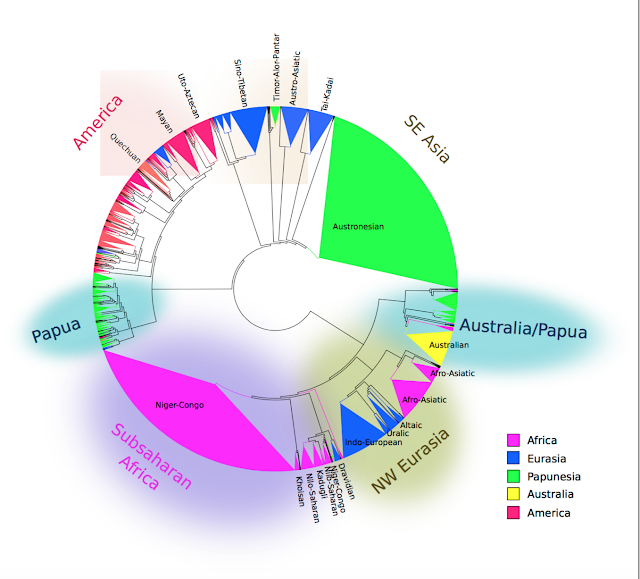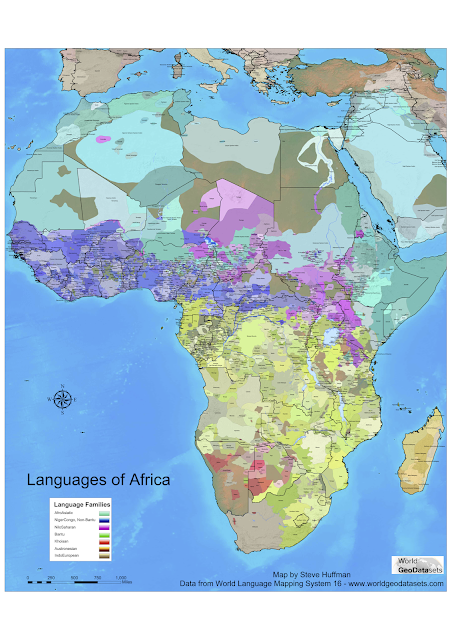Linguists are humans too
Humans like to form groups, and linguists, and academics in general, are human too (despite popular beliefs that we're all lizards and/or AI). Within these groups there are certain shared conventions and expected shared knowledge and assumptions. Groups are established both by shared conventions, culture etc, but they are also a product of the exclusion (intentional or not, explicit or implicit) of others.
The rules that govern whether or not a statement is a viable member of a language is called grammar, it can vary with each group you are a part of and even over time and specific context within that group.
 Sometimes the term "grammar" is used more broadly also outside of the study of language and is also applied to any set of rules that govern whether something is a member of a system or not, such as the grammar of Chinese ice-ray latices (see Stouffs & Wieringa 2006). FYI, this is a an ice-ray latice (image taken from here) --->
Sometimes the term "grammar" is used more broadly also outside of the study of language and is also applied to any set of rules that govern whether something is a member of a system or not, such as the grammar of Chinese ice-ray latices (see Stouffs & Wieringa 2006). FYI, this is a an ice-ray latice (image taken from here) --->
(This perspective leads us to believe that grammar is about discrete borders, member or not-member, and this is of course not true. Even if we imagine such a discrete system to be true in a specific instance (a combination of which interlocutors, your respective social roles, time and date, etc) we'd still have to cope with a gazillion of those systems as every variable change. But.. anyway.*)
So, we can, if we so choose, speak of grammar of sociological group membership and grammar of linguists.
Sometimes these sociological groups in linguistics correlate with the practice of certain theoretical models, schools or frameworks, other times country of origin or the genealogical groups that the linguists study (Austronesianists, Algonquianists). One of the benefits of forming groups for humans is that communication becomes more efficient if one needs to provide less background information and less information to disambiguate meaning, one of the drawbacks it that it might make the research less accessible to others that might improve upon it and further our understanding of the world.
I was reminded of this because I saw that in one of the latest podcasts from the Speculative Grammarian we will be provided with, among other topics: an explanatory model of the success of the most successful frameworks, of tribalism in linguistics
This also reminds me of a recent paper by Haspelmath where he writes the following (my hyperlinks):
It is not hard to see that linguists who work on linguistic diversity tend tofall into two very rough sociological groups: Those who are more likely to attend
conferences like the Association for Linguistic Typology and publish in journals like
Linguistic Discovery, and those who are more likely to attend West Coast Conference on
Formal Linguistics and publish in NLLT. But what kind of intellectual difference, if any,
corresponds to this grouping?
My feeling is that the intellectual difference between the two sociological groups is
not well understood in our field, and that many linguists who tend to hang out in one
of the groups more than in the other are perhaps not committed to a particular
intellectual orientation. (free PDF of entire paper here)
So yes, linguists are humans too and form groups, let's hope that we're sensible enough to not let that stop us from communicating outside of those groups in an enough intelligible way so that our field might move further and prosper.
References
Haspelmath, Martin (to appear) Descriptive hypothesis-testing is distinct from comparative hypothesis-testingTo appear in "Language" (Perspectives), reply to position paper by Davis, Gillon and Matthewson (free PDF here)
Stouffs, Rudi and Mark Wieringa (2006)The generation of Chinese ice-ray lattice designs on 3D surfaces. Communicating Space(s), 24th eCAADe Conference Proceedings, Volos, September 6-9 (Free PDF here)
* This paragraph constitutes what Swedes would call a "brasklapp", a reservation to answer to criticism the author knows will come. The term has historical origins as the Bishop Hans Brask added a little note to an important document with his signature. This note said that he did not agree with the decision and the term "brasklapp" came to mean a hidden reservation, and then just.. a reservation. This story might not be true, but the word does exist. This has been your Swedish lesson of the day, you are welcome. Hurra!
The rules that govern whether or not a statement is a viable member of a language is called grammar, it can vary with each group you are a part of and even over time and specific context within that group.
 Sometimes the term "grammar" is used more broadly also outside of the study of language and is also applied to any set of rules that govern whether something is a member of a system or not, such as the grammar of Chinese ice-ray latices (see Stouffs & Wieringa 2006). FYI, this is a an ice-ray latice (image taken from here) --->
Sometimes the term "grammar" is used more broadly also outside of the study of language and is also applied to any set of rules that govern whether something is a member of a system or not, such as the grammar of Chinese ice-ray latices (see Stouffs & Wieringa 2006). FYI, this is a an ice-ray latice (image taken from here) --->(This perspective leads us to believe that grammar is about discrete borders, member or not-member, and this is of course not true. Even if we imagine such a discrete system to be true in a specific instance (a combination of which interlocutors, your respective social roles, time and date, etc) we'd still have to cope with a gazillion of those systems as every variable change. But.. anyway.*)
So, we can, if we so choose, speak of grammar of sociological group membership and grammar of linguists.
Sometimes these sociological groups in linguistics correlate with the practice of certain theoretical models, schools or frameworks, other times country of origin or the genealogical groups that the linguists study (Austronesianists, Algonquianists). One of the benefits of forming groups for humans is that communication becomes more efficient if one needs to provide less background information and less information to disambiguate meaning, one of the drawbacks it that it might make the research less accessible to others that might improve upon it and further our understanding of the world.
I was reminded of this because I saw that in one of the latest podcasts from the Speculative Grammarian we will be provided with, among other topics: an explanatory model of the success of the most successful frameworks, of tribalism in linguistics
This also reminds me of a recent paper by Haspelmath where he writes the following (my hyperlinks):
It is not hard to see that linguists who work on linguistic diversity tend tofall into two very rough sociological groups: Those who are more likely to attend
conferences like the Association for Linguistic Typology and publish in journals like
Linguistic Discovery, and those who are more likely to attend West Coast Conference on
Formal Linguistics and publish in NLLT. But what kind of intellectual difference, if any,
corresponds to this grouping?
My feeling is that the intellectual difference between the two sociological groups is
not well understood in our field, and that many linguists who tend to hang out in one
of the groups more than in the other are perhaps not committed to a particular
intellectual orientation. (free PDF of entire paper here)
So yes, linguists are humans too and form groups, let's hope that we're sensible enough to not let that stop us from communicating outside of those groups in an enough intelligible way so that our field might move further and prosper.
References
Haspelmath, Martin (to appear) Descriptive hypothesis-testing is distinct from comparative hypothesis-testingTo appear in "Language" (Perspectives), reply to position paper by Davis, Gillon and Matthewson (free PDF here)
Stouffs, Rudi and Mark Wieringa (2006)The generation of Chinese ice-ray lattice designs on 3D surfaces. Communicating Space(s), 24th eCAADe Conference Proceedings, Volos, September 6-9 (Free PDF here)
* This paragraph constitutes what Swedes would call a "brasklapp", a reservation to answer to criticism the author knows will come. The term has historical origins as the Bishop Hans Brask added a little note to an important document with his signature. This note said that he did not agree with the decision and the term "brasklapp" came to mean a hidden reservation, and then just.. a reservation. This story might not be true, but the word does exist. This has been your Swedish lesson of the day, you are welcome. Hurra!




Comments
Post a Comment